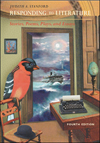 <a onClick="window.open('/olcweb/cgi/pluginpop.cgi?it=jpg:: ::/sites/dl/free/0767422783/42106/about.jpg','popWin', 'width=NaN,height=NaN,resizable,scrollbars');" href="#"><img valign="absmiddle" height="16" width="16" border="0" src="/olcweb/styles/shared/linkicons/image.gif"> (1.0K)</a> <a onClick="window.open('/olcweb/cgi/pluginpop.cgi?it=jpg:: ::/sites/dl/free/0767422783/42106/about.jpg','popWin', 'width=NaN,height=NaN,resizable,scrollbars');" href="#"><img valign="absmiddle" height="16" width="16" border="0" src="/olcweb/styles/shared/linkicons/image.gif"> (1.0K)</a> |  <a onClick="window.open('/olcweb/cgi/pluginpop.cgi?it=jpg:: ::/sites/dl/free/0767422783/42106/reading.jpg','popWin', 'width=NaN,height=NaN,resizable,scrollbars');" href="#"><img valign="absmiddle" height="16" width="16" border="0" src="/olcweb/styles/shared/linkicons/image.gif"> (1.0K)</a> <a onClick="window.open('/olcweb/cgi/pluginpop.cgi?it=jpg:: ::/sites/dl/free/0767422783/42106/reading.jpg','popWin', 'width=NaN,height=NaN,resizable,scrollbars');" href="#"><img valign="absmiddle" height="16" width="16" border="0" src="/olcweb/styles/shared/linkicons/image.gif"> (1.0K)</a> |  <a onClick="window.open('/olcweb/cgi/pluginpop.cgi?it=jpg:: ::/sites/dl/free/0767422783/42106/evaluating.jpg','popWin', 'width=NaN,height=NaN,resizable,scrollbars');" href="#"><img valign="absmiddle" height="16" width="16" border="0" src="/olcweb/styles/shared/linkicons/image.gif"> (1.0K)</a> <a onClick="window.open('/olcweb/cgi/pluginpop.cgi?it=jpg:: ::/sites/dl/free/0767422783/42106/evaluating.jpg','popWin', 'width=NaN,height=NaN,resizable,scrollbars');" href="#"><img valign="absmiddle" height="16" width="16" border="0" src="/olcweb/styles/shared/linkicons/image.gif"> (1.0K)</a> |  <a onClick="window.open('/olcweb/cgi/pluginpop.cgi?it=jpg:: ::/sites/dl/free/0767422783/42106/experiencing.jpg','popWin', 'width=NaN,height=NaN,resizable,scrollbars');" href="#"><img valign="absmiddle" height="16" width="16" border="0" src="/olcweb/styles/shared/linkicons/image.gif"> (1.0K)</a> <a onClick="window.open('/olcweb/cgi/pluginpop.cgi?it=jpg:: ::/sites/dl/free/0767422783/42106/experiencing.jpg','popWin', 'width=NaN,height=NaN,resizable,scrollbars');" href="#"><img valign="absmiddle" height="16" width="16" border="0" src="/olcweb/styles/shared/linkicons/image.gif"> (1.0K)</a> |  <a onClick="window.open('/olcweb/cgi/pluginpop.cgi?it=jpg:: ::/sites/dl/free/0767422783/42106/interpreting.jpg','popWin', 'width=NaN,height=NaN,resizable,scrollbars');" href="#"><img valign="absmiddle" height="16" width="16" border="0" src="/olcweb/styles/shared/linkicons/image.gif"> (1.0K)</a> <a onClick="window.open('/olcweb/cgi/pluginpop.cgi?it=jpg:: ::/sites/dl/free/0767422783/42106/interpreting.jpg','popWin', 'width=NaN,height=NaN,resizable,scrollbars');" href="#"><img valign="absmiddle" height="16" width="16" border="0" src="/olcweb/styles/shared/linkicons/image.gif"> (1.0K)</a> |  <a onClick="window.open('/olcweb/cgi/pluginpop.cgi?it=jpg:: ::/sites/dl/free/0767422783/42106/testyour_knowledge.jpg','popWin', 'width=NaN,height=NaN,resizable,scrollbars');" href="#"><img valign="absmiddle" height="16" width="16" border="0" src="/olcweb/styles/shared/linkicons/image.gif"> (1.0K)</a> <a onClick="window.open('/olcweb/cgi/pluginpop.cgi?it=jpg:: ::/sites/dl/free/0767422783/42106/testyour_knowledge.jpg','popWin', 'width=NaN,height=NaN,resizable,scrollbars');" href="#"><img valign="absmiddle" height="16" width="16" border="0" src="/olcweb/styles/shared/linkicons/image.gif"> (1.0K)</a> |
Edith Wharton was born to a wealthy New York family and was taught how to behave
as a well-bred young lady, although she would later rebel. When she was twenty-three,
she married Teddy Wharton, who came from a similar social background but had
little interest in artistic or intellectual pursuits. During the 1890s, she
suffered from depression and revived her spirits with annual trips to France
and Italy. In 1897, she published her first book, The Decoration of Houses,
in which she criticized the Victorian style of heavily curtained rooms full
of overstuffed furniture and advocated a simpler style that reflected the owners'
personalities rather than the fashions of the day. By 1905, she had moved to
fiction, publishing the novel The House of Mirth, a critical look at
New York's high society. In 1907, her marriage to Teddy crumbling, she began
spending winters in Paris, where, a year later, she began an affair with journalist
Morton Fullerton, a friend of novelist Henry James. Wharton published Ethan
Frome in 1911, a novel about a man caught between his wife and his true
love. She and Teddy were divorced in 1913, and she spent most of her time in
Europe with a circle of French and American writers and artists. In 1920, she
published The Age of Innocence, a novel about a man who cannot escape
the conventions of elite New York society. For this book, Wharton won the Pulitzer
Prize in 1921, and she returned to the United States for the last time to accept
it. In 1927, she was nominated for the Noble Prize in literature. Until the
end of her life, she published a book almost every year. The following story,
first printed in Liberty Magazine in 1934, was included in her collection
The World Over (1936).
Major works by Wharton The Greater Inclination (1899, stories)
The Valley of Decision (1902)
The House of Mirth (1905)
Madame de Treymes (1907)
Ethan Frome (1911)
The Reef (1912)
The Custom of the Country (1913)
Summer (1917)
The Age of Innocence (1920)
Old New York (1924)
The Mother's Recompense (1925)
A Backward Glance (1934, memoir)
Wharton and the Web The Edith Wharton Society home
page is a superb resource for any information about Edith Wharton's life
and work.
Interested in reading contemporary criticism on Edith Wharton? This page
at the Perspectives on Literature site includes numerous bibliographical references
to criticism of Edith Wharton's work.
The Edith Wharton
page on the Domestic Goddess website includes detailed biographical material
and links to other Internet resources. |



 2003 McGraw-Hill Higher Education
2003 McGraw-Hill Higher Education




